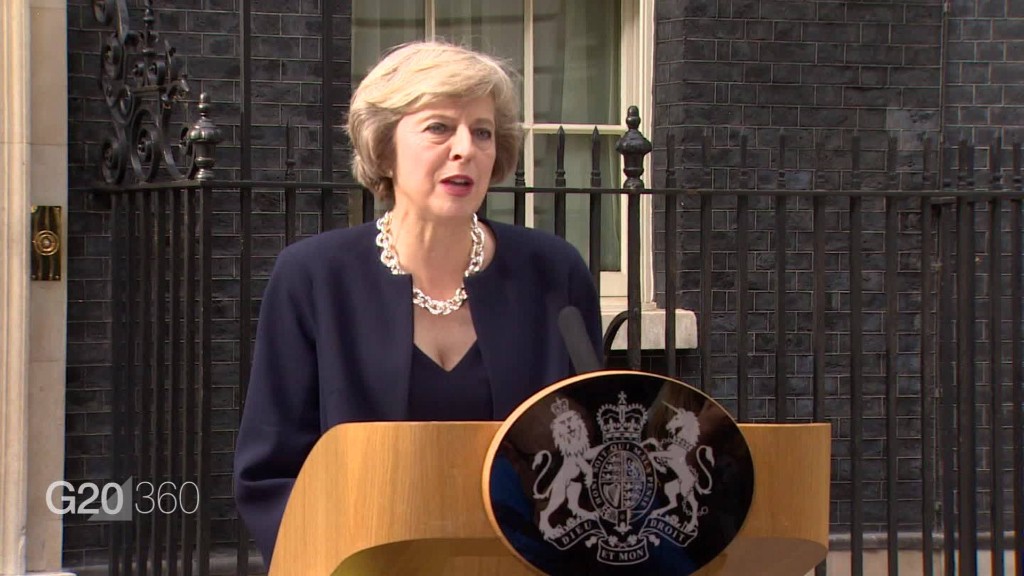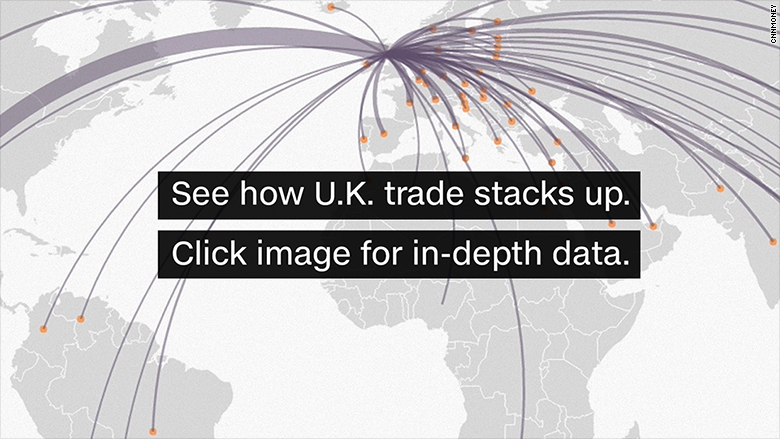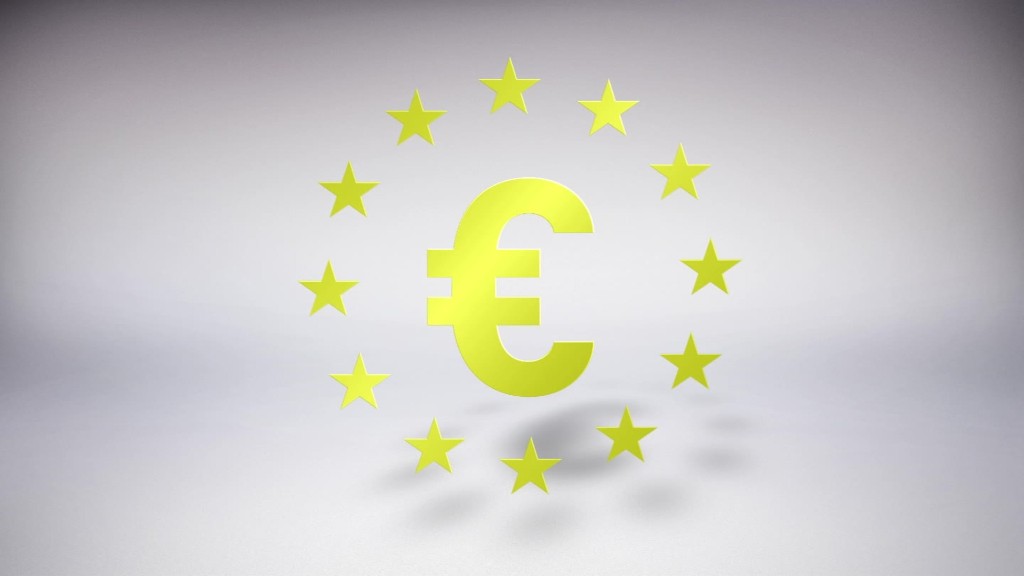
Get ready for some major divorce drama.
Britain is preparing to split from the European Union, a separation that will affect U.K. trade around the world.
As it stands, the U.K. exports and imports goods and services worth just over £1 trillion ($1.3 trillion) a year. So there's clearly a lot at stake.
Here's why Brexit will affect global trade, not just in Europe:
- As an EU member, the U.K. trades freely with the other 27 EU countries. That two-way flow was worth £513 billion ($680 billion) last year, just over half the U.K.'s total. A new EU-U.K. deal will now have to be struck.
- But it doesn't end there. The EU manages preferential trade deals with nearly 60 other nations, including Switzerland and Turkey, on behalf of its members. The U.K. will have to seek new ties with those countries.
- For the rest of the world -- such as the U.S. and China -- the U.K.'s trading relationship is based on global standards overseen by the World Trade Organization. The problem: The EU manages Britain's WTO membership.
So when the U.K. leaves the EU (in 2019 at the earliest), it will have to reset all these relationships by renegotiating trade terms with the EU, the WTO and every other partner. This is likely to take several years.

WTO director general Roberto Azevedo, along with many others, has warned that it will not be a simple process.
"Key aspects of the EU's terms of trade could not simply be cut and pasted for the U.K.," he said, according to the text of a speech he made in June in London, ahead of Britain's EU referendum.
Trade won't stop if the U.K. exits the EU without having new deals in place, but it could slow and become more costly, potentially damaging British jobs and companies.
Azevedo says this could cost British exporters up to 5.6 billion pounds ($7.4 billion) each year in duty payments -- and that's without taking into account the impact on trade in services.
People who campaigned for Brexit say Britain will gain from setting its own trade rules. But just how much access to European markets the U.K. can retain, and under what terms, will be critical.
Related: Trade with China won't save Brexit Britain
The government was caught off guard by the Brexit vote on June 23, and is now trying to hire hundreds of trade negotiators by the end of the year to work on new deals.
It's also trying to build stronger ties with places like India and China. Trade with these two countries is comparatively small right now, worth just £72 billion last year.
The Institute for Fiscal Studies warned recently that even dramatic trade expansion with China over the next 15 years won't do enough to compensate for small losses to EU trade.

After the EU, the U.K.'s most important relationship is with the U.S., which is the biggest single country for British exports, taking 20% each year.
But ahead of the Brexit referendum, President Obama warned that a vote to leave the EU would put the U.K. at "the back of the queue" to negotiate a trade deal.
The EU is currently negotiating the Transatlantic Trade and Investment Partnership with the U.S. Talks began in 2013, though opposition to a deal has been growing.


